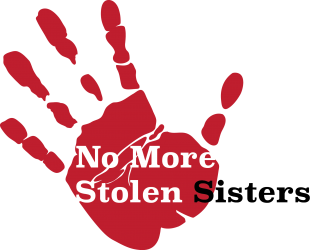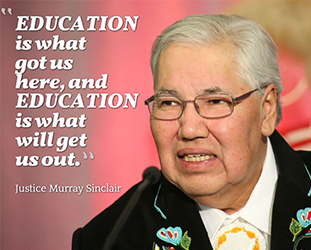
How To Be An Ally for the Indigenous Community

 In June, Canada celebrates National Indigenous History Month. While it is a time to learn about our country’s rich history through the original inhabitants and keepers of the land, it is also a time to learn about the ongoing suffering and trauma. Canada’s Indigenous peoples have suffered far too long. The recent discovery of the bodies of 215 innocent children in the grounds of former residential schools exposes the horrifying ways in which Canada has treated the first settlers from the beginning of time. Please read the statement released by the Tk’emlúps te Secwépemc peoples. For many Canadians, this may be the first they are learning about the cultural genocide and murdering of Canada’s Indigenous peoples. This in itself is shameful.
In June, Canada celebrates National Indigenous History Month. While it is a time to learn about our country’s rich history through the original inhabitants and keepers of the land, it is also a time to learn about the ongoing suffering and trauma. Canada’s Indigenous peoples have suffered far too long. The recent discovery of the bodies of 215 innocent children in the grounds of former residential schools exposes the horrifying ways in which Canada has treated the first settlers from the beginning of time. Please read the statement released by the Tk’emlúps te Secwépemc peoples. For many Canadians, this may be the first they are learning about the cultural genocide and murdering of Canada’s Indigenous peoples. This in itself is shameful.
We know this new discovery is a catalyst for the likely possibility of many, many more bodies discovered on the 139 different residential school grounds. Innocent children forcefully stolen from their homes, the horrific abuse suffered, the heartache and trauma of parents, grandparents, family members, and the continuing generational trauma prove this is not simply a sad part of Canada’s history. It is living trauma. This trauma is still incredibly apparent and continues to be passed on through generations. The fact the horrors are only now being widely discussed by many is reprehensible.

What Can We Do?
This past month also saw the two-year anniversary of the National Inquiry’s Final Report on Canada’s Missing and Murdered Indigenous Women and Girls (MMIWG). While initially viewed as a positive step in finally acknowledging the long-standing deliberate abuse and murder of Canada’s Indigenous women and girls, the reality is that little has been done in the past two years. In fact, the Native Women’s Association of Canada (NWAC) has formally left the process, deeming it toxic and dysfunctional.
As settlers on this land, we should all strive to be allies for the Indigenous community. Many non-Indigenous Canadians, like myself, have been asking: “what can I do?” How can I demand justice for the innocent lives taken, demand that those who inflicted this abuse to be held responsible for their actions, ensure there is an immediate search for bodies in all other former schools? How can we I can be an ally, advocate for change for the many women and girls that have gone missing or been murdered? We can never make this right, but we certainly can become a vocal ally in demanding answers and change.
As we respectfully and gently move forward, below are resources to help inform, educate, and advocate for change.
Become an Ally
These resources are incredibly helpful for non-Indigenous allies when it comes to interacting and working with Indigenous peoples and issues. Having structure and guidance can help prevent further harm to Indigenous peoples.
- Print out Lynn Gehl’s Bill of Responsibilities
- Download the Indigenous Ally Toolkit from the Montreal Urban Aboriginal Community Strategy
- Read Amensty’s 10 Ways to Be An Ally to Indigenous Communities
Listen and Learn
Listen to Indigenous Canadians and get educated on their history and culture. Canada’s many different Indigenous communities - First Nations, Metis and Inuit - have different cultures and traditions with a variety of perspectives. The one big common thread is a long history of abuse, oppression, inequality and mistreatment of their people. These all continue to this day and exist in many forms. The University of Alberta has a free open online course that explores Indigenous histories and contemporary issues in Canada, from an Indigenous perspective. The Native Women’s Association of Canada also has a wealth of information to listen to or read.
Hold Your Government Accountable
Call, write or email your MP and MPP, Premier and Prime Minster. Respectfully demand those responsible are held accountable, and that our government act on the calls for justice. It is up to all Canadians to hold the government accountable.
Call Action to Truth and Reconciliation
Hold Canada accountable. Read Murray Sinclair’s posts on Facebook and on the Truth and Reconciliation website to learn more.
Read Indigenous Literature
In Canada, we are lucky to have rich and varied written works by Indigenous writers. Learn about the history of residential schools from those who have experienced it, and support your local Indigenous artists.
Read the Final MMIWG Final Report
The Executive Summary is a great outline and provides an overview of the many recommendations, most of which have not been touched. Keep up to date on what is happening and ensure your MP knows you will not accept inaction.
Demand Action for Indigenous Women
Indigenous women in Canada are almost four times as likely to suffer from violence than non-Indigenous women. They are also more likely to suffer more severe forms of domestic violence. There are a variety of actions that can be taken, including affordable housing for women, support, and better services. Timely law enforcement presence can also be crucial, but it is absolutely necessarily that first responders are specifically trained to support Indigenous women. Educating those working on the front lines is a major step. The MMIWG Final Report emphasizes the importance of education and states that every group that the inquiry consulted called for “ongoing, mandatory training to equip front-line workers and management to serve and engage with Indigenous communities in culturally sensitive and safe ways.”
Take a Stand Against Violence Against Women
In Canada, Indigenous women and girls make up just 4% of the country’s female population, yet they represent 10% of all missing women in Canada. Recommendations outlined in the Report can help stop the disproportionately high rates of violence Indigenous women face. Learn about and get involved with the Moose Hide Campaign - men taking a stand against violence towards Indigenous women and children. The campaign works hard to end generational trauma and break the cycle of violence.
Photos: Murray (Kairos Canada); School (NATIONAL CENTRE FOR TRUTH AND RECONCILIATION)
